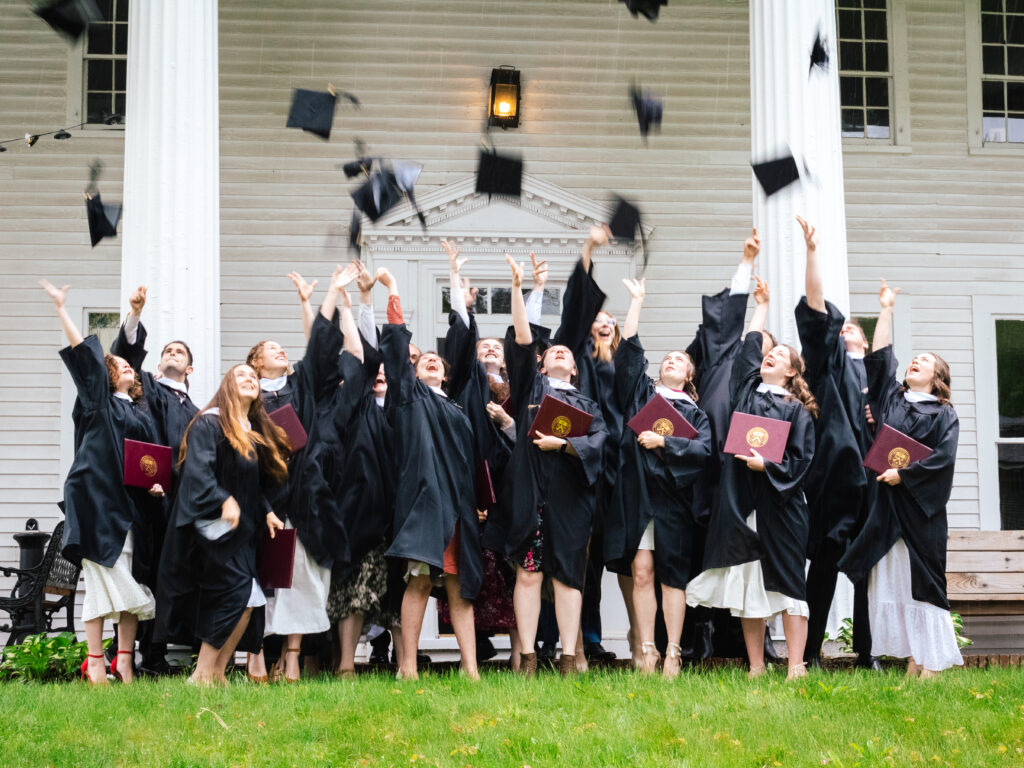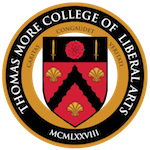By Walter J. Thompson, Senior Fellow and Dean
My dear Seniors,
Quite unexpectedly for all of us, it falls to me to deliver the final charge. Despite the surprise—and, as my colleagues will attest, I am not fond of surprises—it seems a fitting conclusion to my service as Dean; and to your careers as students. Indeed, I just learned that I owe you a charge. Miss Choiniere reminded us at the Soirée that you never enjoyed a proper beginning to your time at the College. The whims of the novel coronavirus deprived you of the usual freshman orientation. At that time, in the beginning, in the mountains, I would have spoken to you about your hopes—about the goods you as students should expect and the persons in whom you should trust. Here at the end, in the valley, I will speak to you about what you have accomplished, about what you have brought to an end.
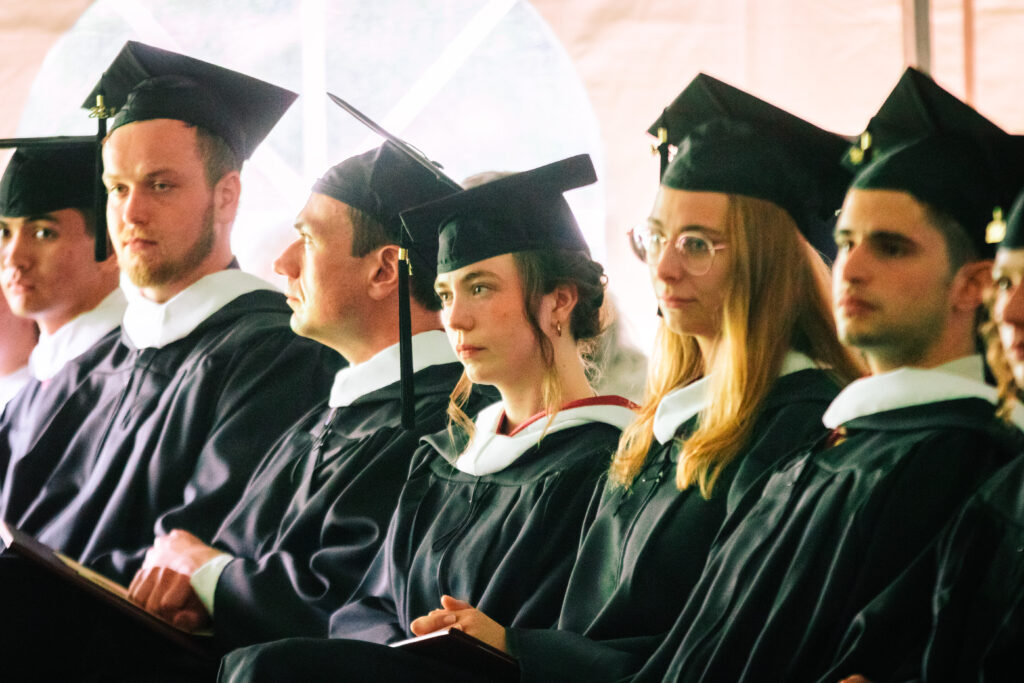
You will have noticed the paradox of calling this final moment in your collegiate careers “Commencement.” How is the end to which you have come a beginning? For not all ends give rise to beginnings. And not all beginnings arise from ends.
Some things end merely by ceasing, by coming to a halt; some things end by being completed, by coming to fulfillment. Things that merely come to a halt are followed by beginnings that are departures from what has preceded; things that come to fulfillment are followed by beginnings that are a flowering of what has preceded. We are done with things that end merely by ceasing; we need never be done with things that end in fulfillment.
Your time as students has come to an end. It is right that you now cease the good work in which we have been engaged these past four years, the work of your education; for, having brought it to a certain completion, you are ready to live from it.

You have been very fortunate to have had this time, at the beginning of your adult lives, to devote yourselves to liberal learning in the company of faithful friends and mentors. Very few are so lucky. Many—indeed, most of the people behind you—sacrificed much that you might have the leisure to cultivate those virtues of mind and heart that enable us to live as free, responsible, and flourishing adults. But the time has come for you to assume the responsibilities for which you have been prepared, to take your place among the mature, to take your turn in doing as has been done for you. This is only just.
Your education has, from the beginning, been directed to this end. We have sought to provide you with an education that can be the beginning—that is, the source and start—of a life well lived. So, from the beginning, we have been trying to prepare you to leave us, not that we might cease our work together, but that we might complete it; not that we might be done with you, but that you might lead the lives for which you have been prepared.
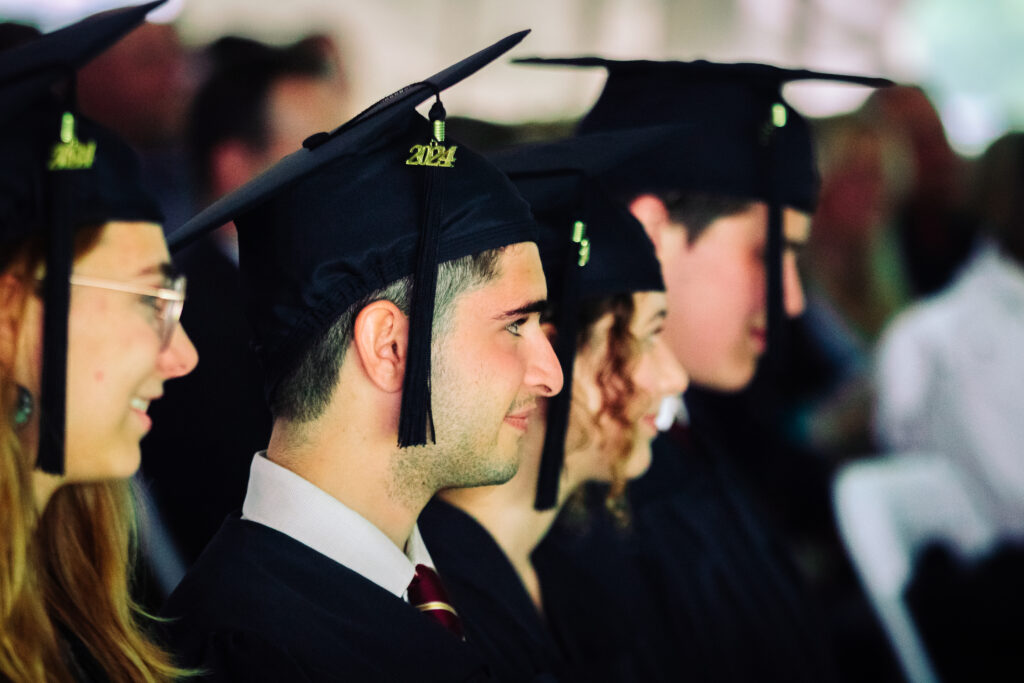
Just as some ends are merely the cessation of what has been, so some beginnings are merely the start of what has not been; and just as some ends are the completion of what has been, so some beginnings are a continuation of something completed, the flowering of some accomplishment. We should not end merely by ceasing, nor begin merely by starting. If we did, our lives would be merely episodic, a series of disjointed stops and starts. You are ending not to cease, but to continue.
You have come to the end of your careers as students, but you have accomplished only the beginnings of an education.
We have not tried to provide you with more than a beginning, for we did not have time for more. (Indeed, we scarcely had time for that.) The liberal arts and sciences are many; the demands of each are great; and the road to mastery in any is long. But we have tried to make a good beginning, a beginning that will allow you to continue and complete what you have begun.
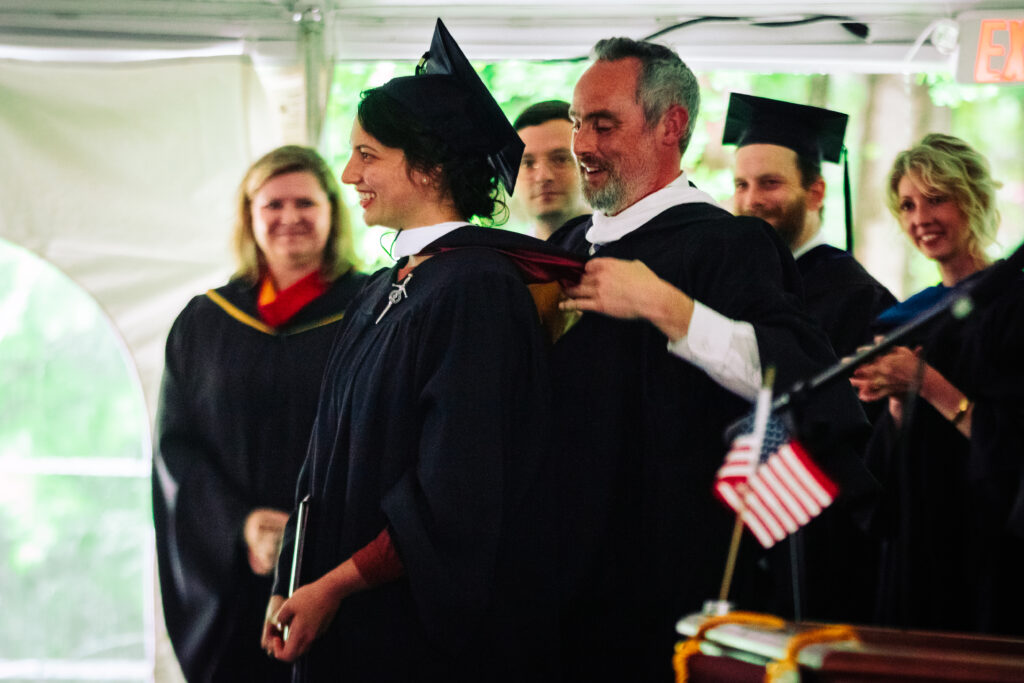
Throughout your time here, our focus has been on introducing you to sources of learning—to the great masters of the Catholic intellectual tradition, the great teachers, from whom we have most to learn; to first principles, the starting points of thinking in the various disciplines; to the proper ways of discerning those starting points in the various disciplines; to the habits of observation, of interpretation, of analysis, of argument, of persuasion necessary to discover the truth and to communicate it to others; to principles and models of noble human action and beautiful human culture.
Above all, we have tried to remain true to our mission as a Catholic educational institution, to be, in the words of Pope Benedict, “first and foremost . . . a place to encounter the living God who in Jesus Christ reveals his transforming love and truth.” In all facets of our common life we have sought to live from that source, our encounter with the living God, and toward that end, our transformation in Christ. For, in the words of St. Irenaeus, “The glory of God is the living man; and the life of man is the vision of God.”
If we have done our jobs, and you have done your part, your education should have brought you to an end that can be a fruitful source of life and learning throughout the time of your earthly pilgrimage.

Your accomplishments—whatever truths you have learned; whatever habits, moral and intellectual, you have acquired; whatever friends you have made; whatever memories you have kept—all these will remain with you. They can be sources for the rest of your lives if you remain faithful to them, if you keep them in mind and heart, if you continue to live from them.
This fidelity to what you have begun is the most just return you can make to those by whose efforts you have come to this end, those to whom you owe a debt of gratitude—your parents, your teachers, your friends. But that fidelity requires that you not let what you have received lie dormant, confined to the past, a source only of nostalgia. You must continue what you have begun, in whatever new work you undertake, whatever new course of studies you pursue, whatever new vocation you begin, in whatever new place and with whatever new companions you find yourselves.
We are here today to celebrate your accomplishment—the bringing of your studies to a good and happy end, an end that need not be left behind by anything you now commence, but that can remain a fruitful source in your lives from this day forward.

At the end of his earthly life, our patron, Thomas More, expressed his earnest desire that, by the mercy of God, he and his persecutors might someday meet merrily in Heaven, the true end of all our lives and labors. How much more do we—your families, your teachers, and your friends—wish you every good fruit of what you have accomplished here.
So, my dear Seniors, I come, at last, to the end. The President would have me remind you of an ineluctable fact of Latin grammar: you are no longer studentes—those striving—a present participle; you are now alumni—those nourished—a past participle.
May the good Lord bless and keep you until we meet merrily again, soon or in the end.
You may now move your tassels.
